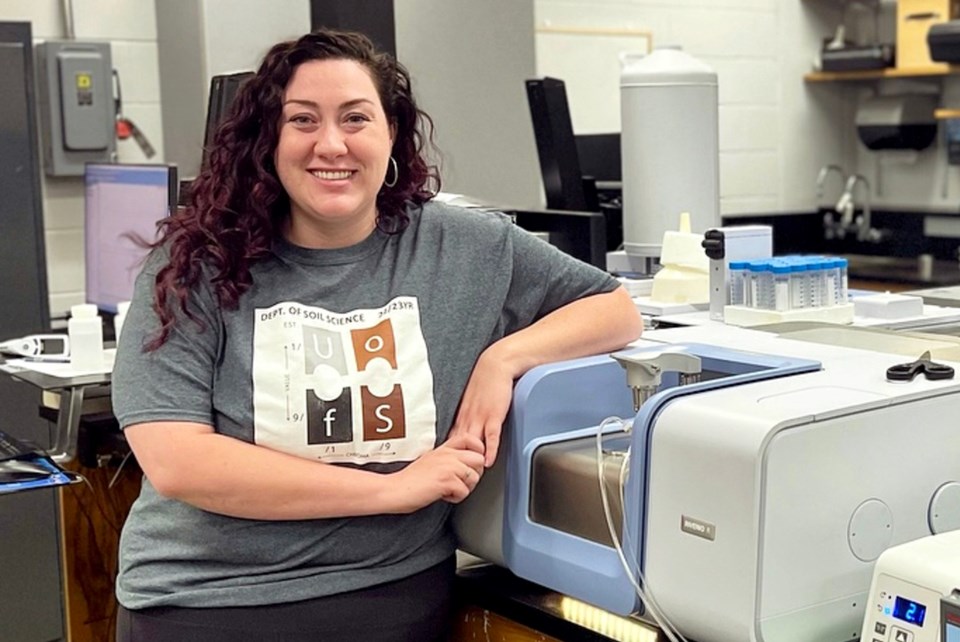SASKATOON — Just like humans, plants need nutrients to survive and grow, and many of these nutrients are important compounds found in soil. A University of Saskatchewan (USask) researcher is exploring how phosphorus, an important nutrient for humans and plants, reacts with mineral compounds and how these reactions can impact how well phosphorus is used in soil.
Although phosphorus is required for the growth of plants, USask master’s student Catherine Chavez said it is important to use it efficiently in soil because there is only a finite amount to go around.
“Phosphorus is a required nutrient for all living organisms, and its availability is controlled by adsorption processes,” said Chavez.
Adsorption describes a process where particles of one substance adhere to the surface of another. Her research project is exploring how a wide range of phosphorus compounds react with iron oxide minerals.
“Understanding this [outcome] is important to incorporate into the phosphorus cycle in the soil, as well as generally understanding the bioavailability, mobility, and fate of P in the environment,” she said.
Chavez notes that understanding these types of reactions can lead to better fertilizers and more efficient management of phosphorus already present in soil.
“Adsorption of phosphate compounds is not a new research topic,” said Chavez. “However, my flow through [a unique] spectroscopic experimental setup for the collection of real time adsorption data is quite novel.”
Under the supervision of College of Agriculture and Bioresources Department of Soil Science professor Dr. Derek Peak (PhD), Chavez is using Attenuated Total Reflectance Fourier Transform Infrared Spectroscopy to collect her experimental data. This type of spectroscopy uses infrared radiation to measure the amount and type of chemicals present in a sample.
After collecting results from the spectroscopy analysis, Chavez uses specialized software to conduct statistical analyses that bring insight into the relationship created when phosphates adhere to mineral surfaces.
Results have indicated that organic phosphate compounds adhere to minerals slower than polyphosphates and that the adsorption process takes place through two main mechanisms.
Chavez said pH affects how phosphate is adsorbed, and that if acidity levels are higher, phosphorus compounds tend to attach to mineral compounds faster.
This information sheds light on how this interesting chemical relationship could be leveraged when developing soil fertility programs or new phosphorus fertilizers when designing sustainable sources of plant growth.
Chavez has had the opportunity to present her research at the Soil Science Societies of America conference in Baltimore last year, and at the Canadian Soil Science Society conference this past summer.
Her next plans for the experiment are to continue to examine the specifics of how these phosphate complexes form and how other factors might affect their formation. She plans to finish her graduate degree in the spring of 2024.
Originally from the state of New Mexico in the United States, Chavez credits her dreams of working in a research laboratory and the uniqueness of the USask agricultural education programs for her successes in research so far.
“The University of Saskatchewan is well known for the College of Agriculture and Bioresources and has one of the very few Soil Science departments in Canada,” said Chavez. “Moving away from my home for new opportunities was a goal of mine. I have always been interested in soil chemistry and the wide area of research topics it covers.”
The research has been supported by the Natural Sciences and Engineering Research Council of Canada.
— Submitted by USask Media Relations
SASKTODAY.ca is Saskatchewan's home page. Bookmark us at this link




